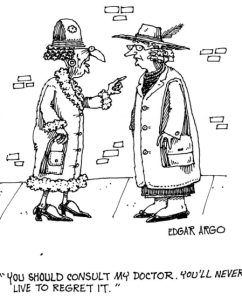The same loyalty score. Net promoter scores* (NPS) are widely recognized across a variety of industries as a measure of customer loyalty. It is a simple way of summarizing customer experiences and satisfaction by asking the question: How likely is it that you would recommend our company to a friend or colleague? The average NPS score ranges from 5 to 10. Organizations such as Apple, Amazon, and CVS score 50 and above, attesting to their loyal customers. In contrast, hospitals and cable companies both score a negative 3 on a scale that measures from minus 100 to plus 100. So how can hospitals improve patient loyalty?
In an increasingly competitive environment, satisfaction and loyalty matter. Patients are taking a more active role in selecting their care. Changing payment models and more choices for delivery of care are making consumers more careful with the dollars they must pay; that makes their loyalty to your organization more important.
The patient experience is a key determinant of hospital loyalty. This experience includes the continuum of care from point of access through care coordination, billing and post-discharge follow-up. For example, at the outset of the experience, the hospital should make itself easy to find and desirable to use by capitalizing on social media, quality scores (e.g. five star hospital for cardiac surgery), and the outcomes or success rates of specific procedures. At the end of the experience, hospital bills should be simple, clear, easily understood by the patient, and discharge instructions and medication should be available in multiple ways, not just a piece of paper as the patient is wheeled out the door. There is a lot of commotion and activity as a patient is being discharged, which can cause confusion later on when the patient tries to decipher the verbal and written instructions given to him as he was leaving the hospital. Reaching out to the patient to clarify any questions when they are home is a point where the customer experience can be immediately improved.
Seeking care is stressful for most individuals and going to a hospital is even more so. Hospitals and doctors need to reduce that stress at every point in the patient experience and make it positive. Loyalty can be enhanced by providing what healthcare consumers need to make the patient experience a positive one. The essentials are:
- Transparency. As consumers with heightened sensitivity to prices, patients are looking for clear upfront pricing and an understanding of the responsibility they have for the total cost. Patients are being encouraged to look at the quality ratings of hospitals and doctors. Higher ratings equate to safer care and lower risk of mortality.
- Access. Communicating with their doctor via email is important to patients because it can be sent and replied to when it is convenient for both parties. Some emails can be reviewed and responded to by appropriate staff or clinicians and don’t require a physician.
- Convenience. Time is scarce for busy people and that makes convenience a priority when seeking care. The ability to schedule appointments online for the same day is one of the top three features that consumers want. Virtual care means travel is eliminated or if the type of care is best suited by an in-person visit, a site close to home or in the workplace keeps travel time to a minimum.
- Quality patient-centered care. High quality care in the hospital is not limited to the skill of the surgeon or diagnostician. Treating a patient with respect and empathy, excellent communication between physicians, nurses, and the patient are key to enhancing loyaltywhile they are in the hospital.
- Relationship. Keep an enduring relationship by continuing to be a part of their life when they don’t need care. Send information personalized to the individual as a follow-up to their visit. Educational material relevant to their condition and to maintaining a healthy lifestyle shows that you care when he isn’t in the hospital.
Know what your loyalty score is. Some questions to see if you are on track with improving the patient experience that push loyalty numbers up:
- How quickly and consistently deal with deficiencies in service?
- Do you hold staff accountable for interactions with patients?
- Do you know what patients expect from your organization?
- Do you know what consumers are saying about your hospital?
Hospitals and healthcare have not historically been in the business to satisfy their customers, but competition is changing that. Apple, American Express, and General Electric are all loyalty leaders who target their customers and turn customers into promoters. Building loyalty among your customers means a relationship where they will return for care and become advocates providing enthusiastic referrals to friends, relatives, and colleagues.
Today, a positive customer experience is vital to loyalty.
* Net Promoter Score® is a commonly used as a measure of loyalty.



Leave A Comment
You must be logged in to post a comment.